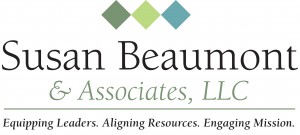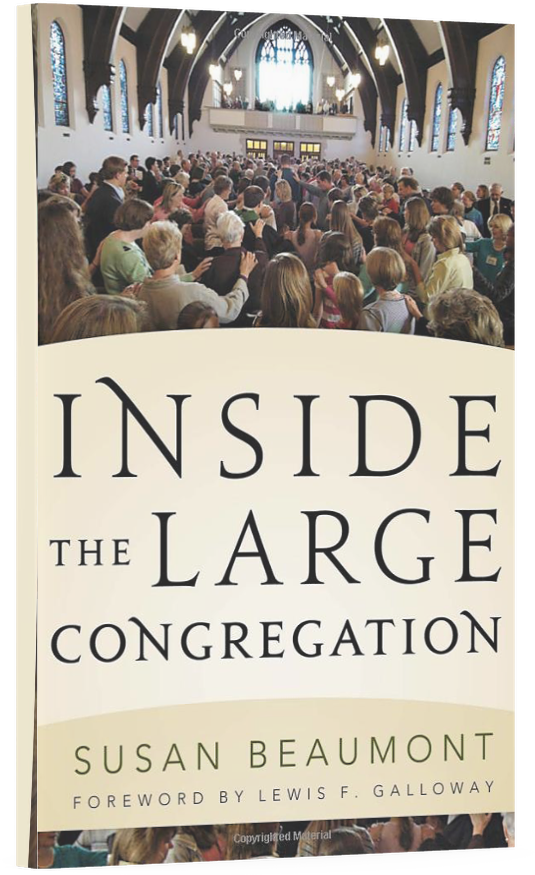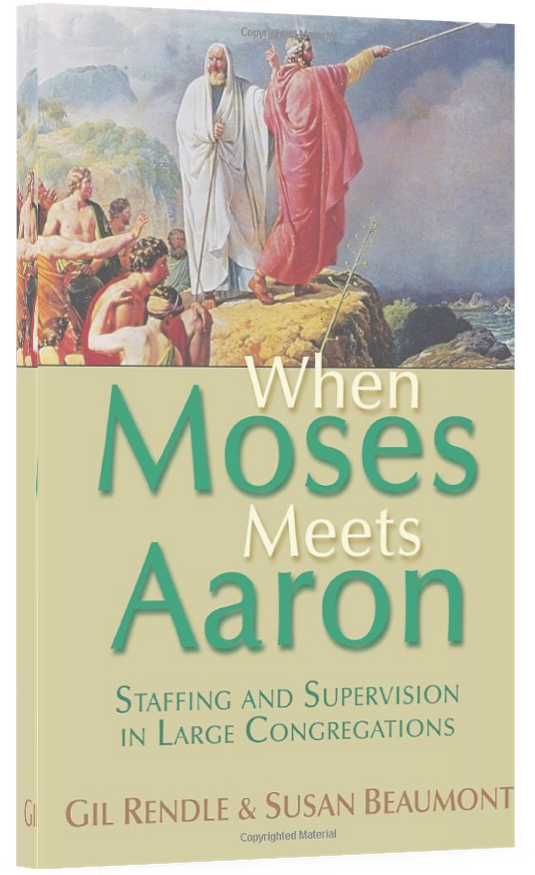 “What are you seeing out there that is working?” the pastor asked when we met for lunch. The assumption behind the question was that someone, somewhere had discovered a way forward, one that we might all benefit from knowing.
“What are you seeing out there that is working?” the pastor asked when we met for lunch. The assumption behind the question was that someone, somewhere had discovered a way forward, one that we might all benefit from knowing.
This era of congregational life calls for innovation and learning. We praise reinvention, yet our congregations aren’t doing much risk taking. We stay in maintenance mode and wait for someone else to discover a magic bullet that we can replicate.
Why aren’t we practicing what we preach? Why aren’t congregations everywhere taking more risks, experimenting and learning new pathways forward? There are at least four factors contributing to our innovation malaise.
Limiting Metrics
We all want to regard our ministry as a success. Traditionally, success in the mainline church has been defined by growth in membership, attendance and operating budgets. Unfortunately, in an era of increasing secularization and declining religious affiliation these indicators are not likely to rise.
Fostering innovation requires that we adopt better indicators to serve as a barometer of our learning and progress. If our sole focus is on the weekly number of “butts in seats” and “money in the offering plates,” we are not free to experiment or fail. Any new experiment that threatens even a slight decrease in attendance or giving is quickly abandoned.
Effective measures of learning need to focus more on outcomes, and less on output. Outcomes describe specific changes in opinion, attitude, behaviors, knowledge, skills, status, or level of functioning. Outputs are usually metric based and describe what we do and who we reach (number of participants, people served, classes taught, etc.)
Outcomes are not easily counted, but they are observable. We need to do a better job of creating indicators of our learning outcomes. We might measure the number of tried, but failed, experiments. We might collect stories of important lessons learned and new insights gained. We might set goals targeted at meaningful risk taking.
Our Fear of Failure
The November 2015 issue of the Harvard Business Review features an article, “Why Organizations Don’t Learn,” that identifies two basic mindsets with which people approach their lives: “fixed” and “growth.” People with a fixed mindset believe that intelligence and talent are a matter of genetics. Either you were born with them, or you don’t have them. A fixed mindset aims to appear smart at all costs. It fears looking incompetent and seeks to avoid failure. Consequently a fixed mindset has limited learning capacity.
By contrast, people with a growth mindset seek out challenges and learning opportunities. They don’t see failure as a sign of inadequacy and are eager to take risks. People with a growth mindset are more aware of opportunities for improvement all around them. A growth mindset can be taught and cultivated.
Our problem is that we have institutionalized the fixed mindset. We have taught our congregations that experimentation and risk-taking are best controlled at the denominational level. Others will take risks. The denomination will determine which risks are worthwhile and will provide formulaic solutions to our problems. Our job is one of implementation, not innovation.
If we want congregations to learn we need to break the fixed mindset and reward risk taking at all levels. We can do this by personally demonstrating curiosity, acknowledging what we don’t know, and personally demonstrating a willingness to fail.
Compulsive Activity
These are anxious times to do ministry. When people grow anxious they have a natural tendency to pursue activity compulsively, to be mindlessly busy without adding much value . No one wants to be seen as “fiddling while Rome burns.” So we get busy and we stay busy. We exhaust ourselves and become too tired to learn. We apply what we already know to each new problem that emerges, and then we move on to the next thing.
Becoming a learning organization requires that we collectively breathe more deeply and take time for reflection. Research shows that people who spend as little as 15 minutes per day reflecting on the work of the day perform an average of 20% better than those who don’t.
What might happen if we reserved the first or last minutes of each of our meetings to reflect on what we have tried and learned since last we met? Four simple questions can help:
- What did we set out to do?
- What actually happened?
- Why was there a difference?
- What do we do next time? (which activities do we sustain, improve or eliminate)
Developing a disciplined practice around these four questions will build greater reflective capacity in our congregations. We’ll become a little less inclined to add things that increase our busyness, and a little more inclined to work smarter.
Our Belief in Outside Expertise
Every time that the Pew Research Center comes out with a new report we grit our teeth and dig in. We have come to expect bad news about the ecosystem that supports congregations. The absence of Millennials and the rising number of “Nones” are the go-to excuse for why our situation is intractable. The complexity of our environment seems totally beyond our personal knowledge base and expertise. We yield to the voices of outside experts.
We need to instill a new mindset, one that advocates addressing issues when and where they occur. Whatever the global forces affecting ministry, your challenges are always local and contextual. There are no easy fixes and no one “out there” has the answers. Anyone who suggests ten easy steps is oversimplifying and/or lying.
We need to help our people understand that the specialized voices of outside experts do not hold sway over the breadth and variety of our lived experience in our context.
If we want local congregations to become less passive and more active in the face of decline, we need to make some changes. We need to establish learning metrics, diminish the fear of failure by eliminating fixed mindsets, take more time for reflection, and learn to trust our lived expertise about context. In so doing we can shift the conversation away from what the learning is out there, and focus instead on the learning at our fingertips.



